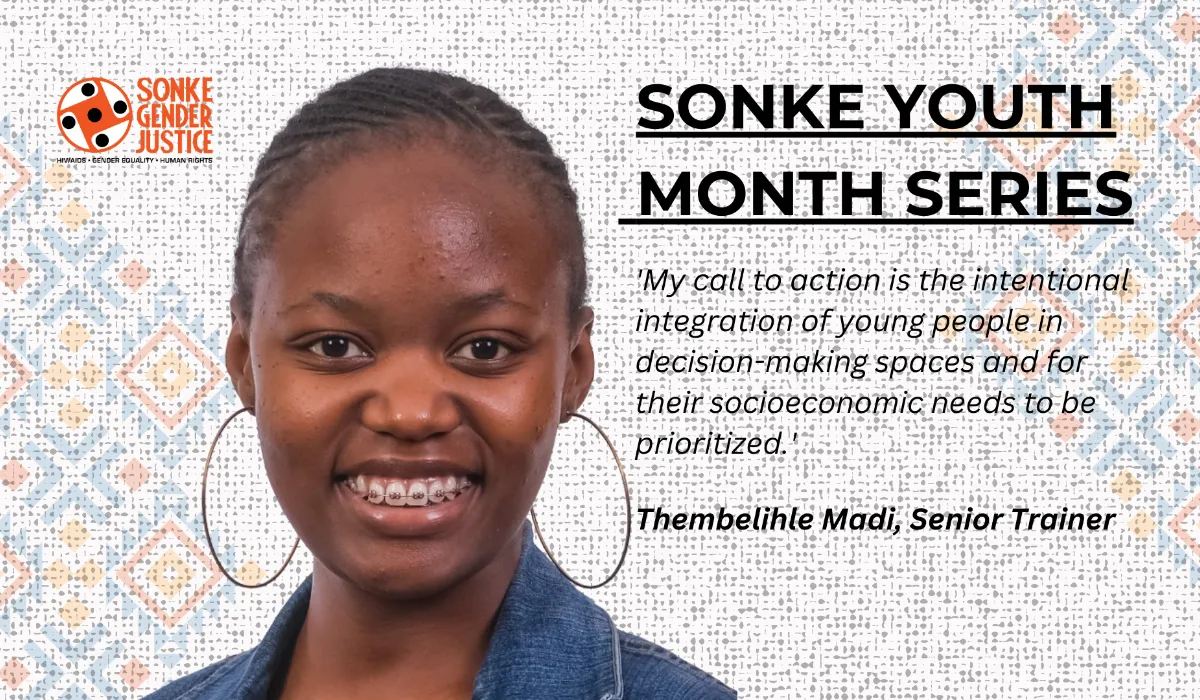Thembelihle Madi, is Sonke’s Senior Trainer attached to the Community Education and Mobilisation portfolio. The Unit works with various communities across South Africa, engaging men and women, young people, the media, government and traditional and faith leaders among other stakeholders, to address gender inequalities, gender-based violence and the spread and impact of HIV and AIDS.
Prior to joining Sonke Gender Justice, Lihle as she is affectionately known, worked as a youth coach at her local high school, where she realized her passion for advocacy.
‘’What drew me to the civil society space is the passion for people and the need to see change in communities and to use my voice to advocate for the end to all social injustices. The civil society space is great for young people who are passionate about seeing and being a part of national and international change of policy, and the uptake of human rights by all members of society.’’ Said Madi.
‘’I am inspired by the many young people who are radical in their advocacy, and this gives me the confidence to continue advocating for what is fair and right knowing that we are united by our voices. I especially enjoy the work with women and girls in their diversity taking on feminist principles to address and redress women’s issues.’’ She adds.
As a trainer, she facilitates workshops focusing on themes such as Sexual Reproductive Health Rights, everyday sexism and Feminism, using gender transformative approaches strategies to drive the conversations. One of the themes she remains passionate about is the gendered impact of climate change.
Climate change refers to long-term shifts in temperatures and weather patterns. These shifts may be natural, but since the 1800s, human activities have been the main driver of climate change, primarily due to burning fossil fuels such as coal, oil, and gas, which produce heat-trapping gases. These changes affect all human beings differently. They affect women more significantly as they carry the burden of care which is exacerbated by floods and natural disasters causing displacement among other issues. Climate change makes it difficult for women and girls to access sexual reproductive health services, like antenatal care, contraceptives, and many other services alike.
Madi says young people have an important role to play in the advocacy of human rights and gender justice because not only are young people affected by these issues but advocating for them helps to shape the future of human rights and dignity.
‘’I believe that young people’s voices are key to realizing a gender-equal society through their innovative skills and energetic nature. Young people in their diversity should be integrated into decision-making spaces to ensure inclusivity while acknowledging the intersecting issues that affect young people across the nations. ‘’ she says.
This youth month, Madi calls for the intentional integration of young people in decision-making spaces and for their socioeconomic needs to be prioritized.
‘’Young people make up 1.2 billion of the global population, yet very few are part of any socioeconomic leadership structures. Meaningful and inclusive youth participation is the order for this youth month ‘’ she concludes.








